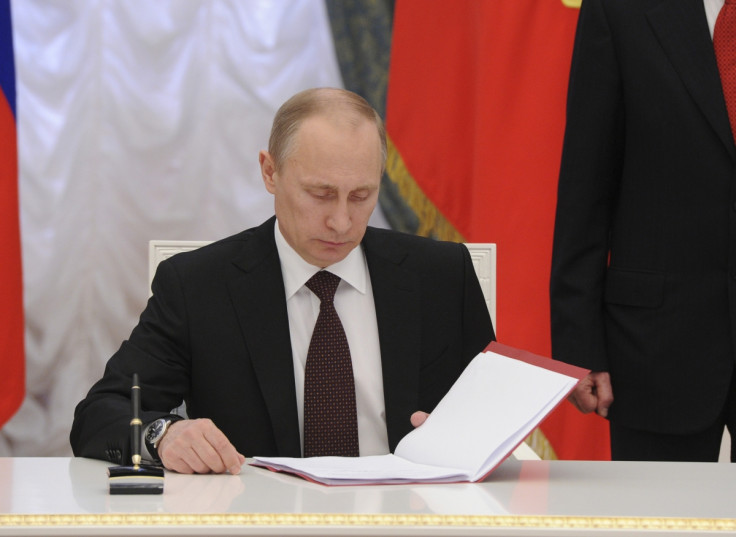US Accuses Russia of Using Gas as 'Tool of Coercion'

The US has accused Russia of using its energy supplies "as a tool of coercion" in a bid to control Ukraine.
US State department spokeswoman Jen Psaki condemned Russian threats to cut off supplies to Ukraine, which could also have an impact on European Union members.
The rebuff came after Russian President Vladimir Putin sent a letter to European leaders, warning that they could face supply cuts over Ukraine's failure to pay off its energy debts.
Kiev owes the Russian company, Gazprom $2.2bn (£1.3bn, €1.6bn) in unpaid bills. The state-controlled gas giant has almost doubled the price it charges the Ukrainian government for gas to $485 per 10,000 cubic metres.
Gazprom has also demanded that the government clear the $2.2bn debt in full and warned it could charge Ukraine in advance for gas in the future.
For its part, the interim government in Kiev refused to accept the new gas price and have not met the repayment deadline set by Gazprom.
There are growing concerns that the rift between Russia and Ukraine could lead to gas shortages in Europe. The European Union relies on Russia for around a third of its gas needs, while 40% of supplies comes via Ukraine pipelines.
Putin has written leaders of 18 European countries and stating that the Ukraine gas crisis has become a "critical situation".
The letter warns that if Ukraine did not pay up the outstanding gas debts, Gazprom would move to an advance payment system. If they still failed to pay, the company could "completely or partially cut off gas deliveries", it added.
In Washington, US state department spokeswoman Jen Psaki condemned the letter and "Russia's efforts to use energy as a tool of coercion."
Previous disputes between Ukraine and Russia over gas payments have resulted in temporary supply shutdowns to Kiev. In the winters of 2005 and 2008, gas deliveries were halted and some European countries faced shortages.
EU countries have said they have enough supplies to endure any shortfall in deliveries, although they have stressed the need to reduce dependence on Russian energy supplies.
© Copyright IBTimes 2025. All rights reserved.






















